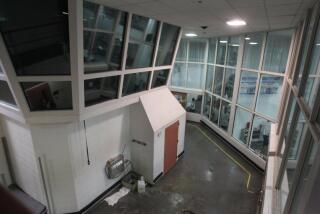MEDICAL : Western Medical Center Pioneers Work With Implanted Defibrillators
- Share via
A retired Rockwell aerospace engineer was walking in his garden in Escondido 10 days ago when he fell to the ground dizzy and weak. Then he was struck with a powerful jolt.
When the man’s heart had started to beat wildly out of control, a device implanted near his abdomen and wired to his heart had jolted it to a brief stop with a 740-volt electric shock. His heart was then able to resume beating at a more normal rhythm.
The one-pound, battery-operated device, called an Automatic Implantable Cardioverter Defibrillator, performs the same function as the electric paddles carried by paramedics that are used to prevent cardiac arrest. When the heart starts to go into arrest, the defibrillator is triggered automatically by a sensors.
A defibrillator was implanted in the Escondido man about a month ago at Western Medical Center/Santa Ana. A second man, a 33-year-old who went into cardiac arrest while having sex, also has since received the device there.
Western Medical Center/Santa Ana is the first hospital in Orange County to provide the lifesaving implants, said Vern Dahl, West Coast sales manager for Cardiac Pacemakers Inc., a St. Paul-based subsidiary of Eli Lilly and Co. that developed and manufactures the devices.
Dahl said Fountain Valley Regional Hospital, UCI Medical Center in Orange and Hoag Memorial Hospital Presbyterian in Newport Beach will start implanting defibrillators in the next three months.
The cost of an implant is $60,000 to $90,000. Daniel G. Domjan, the cardiovascular surgeon who has placed defibrillators in the first two patients at Western Medical Center, said the devices have been implanted in about 3,000 people nationwide since they were developed in 1980.
Domjan said about 120,000 people a year in the United States survive so called “sudden death” caused by severe heart rhythm disruptions. They are generally jolted back to life by paramedics.
Of those survivors who are treated with drugs, Domjan said, about 40% will suffer a fatal heart attack within a year. By contrast, he said, just 1.5% of patients who have received defibrillators have died within the year of implantation.






